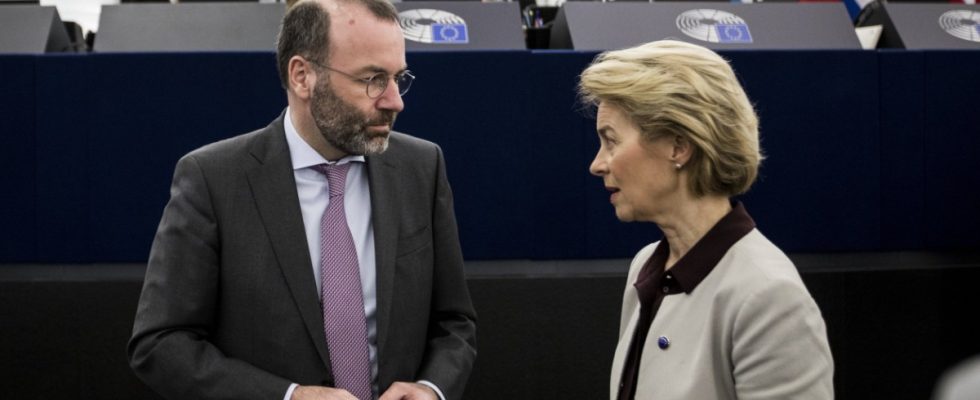The European elections will not take place until spring 2024. But the parties are already setting the course for the election and the subsequent appointment to the EU Commission. And then there’s trouble again – and tactical moves. The Union must solve delicate personnel problems.
It is about the top candidate principle. The major party families had already committed themselves to this in 2019: After that, only those who were previously the top candidates in the European elections can become Commission Presidents. Small flaw: French President Emmanuel Macron rejected the victorious EPP candidate Manfred Weber (CSU) after the election. After long negotiations, this opened the way for Ursula von der Leyen (CDU), who did not even stand for election.
This shows that this principle is still not anchored. Instead, there are concerns in a number of EU countries – and critical voices in Germany too. The CSU is now calling for a departure. “One should make the European elections what they are: a decision on the composition of the European Parliament, but not a decision on the leadership of the European Commission,” said the chairman of the CSU state group in the Bundestag, Alexander Dobrindt, the Funke newspaper -Group. “The leading candidate concept does not lead to success, but to irritations like last time, when Manfred Weber (CSU) was the leading candidate and Ursula von der Leyen (CDU) became Commission President.”
Displeasure with Weber’s dealings with Italy’s post-fascists
So far, this principle has only come into play in 2014, when the EU heads of state and government proposed Jean-Claude Juncker, who won the election, as head of the Commission, and he was subsequently elected by the EU Parliament. Dobrindt emphasized: “Of course, elections need list leaders, so there will also be them in the European elections, but this should not be associated with any claim to leadership in the European Commission.” Dobrindt’s demand is another tip against CSU Vice Weber, who, as EPP parliamentary group leader in the EU Parliament, is a staunch advocate of the new regulation.
CDU chairman Friedrich Merz had already shown his skepticism: “We can only do the top candidate principle if there are no disappointments like in 2019 after the European elections,” he had emphasized weeks ago. He calls for a binding agreement between the party families in the middle, i.e. Christian Democrats, Social Democrats, Greens and Liberals. Merz also advocates a second term for von der Leyen.
At the top of the CDU and CSU, there is dissatisfaction with Weber’s comparatively friendly treatment of the Fratelli d’Italia party of Italian Prime Minister Giorgia Meloni. In contrast to Weber, Merz and CSU boss Markus Söder sharply distance themselves from the post-fascist party. At the end of January, Weber surprisingly brought the President of the European Parliament, Roberta Metsola, into play as a possible EPP top candidate. “Both would be excellent top candidates,” he said of von der Leyen and Metsola at the time. After that, Merz clearly moved away from Weber.

